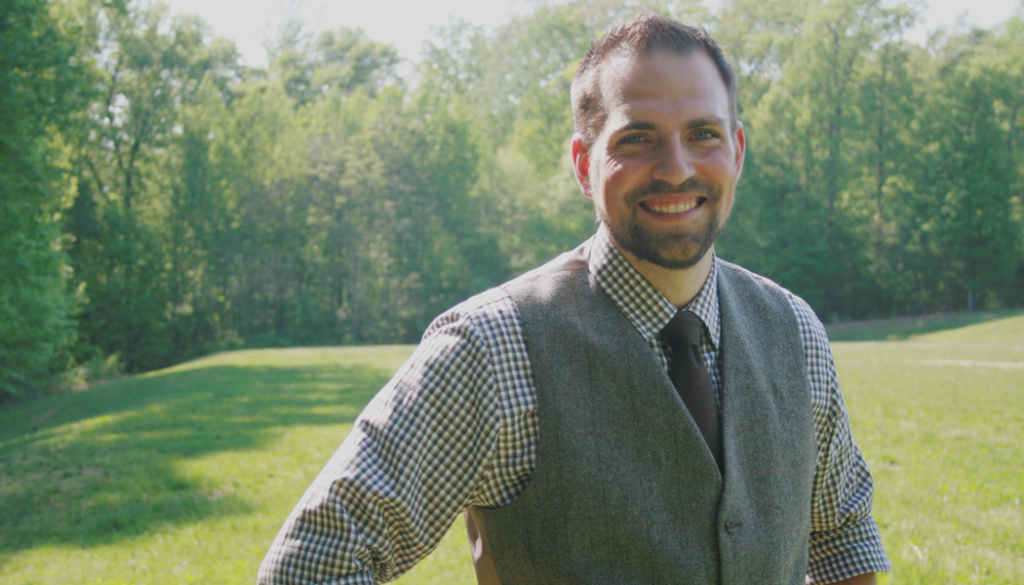Testicular Cancer Awareness Month – Reinventing What It Means to “Man Up”
The phrase “man up” has long been associated with societal expectations for men to appear strong and stoic, and to hide emotions like fear and discomfort. It implies that to be a man, one must constantly be in control, and asking for help or discussing health issues is frowned upon. Digging deeper into the issue, data suggests this outdated sense of manhood could be causing actual harm to men across America. According to the Cleveland Clinic, 61% of men only seek medical consultancy when symptoms become unbearable. In many cases, procrastinating medical intervention can be especially detrimental to health.
Going against this alarming trend, cancer survivor and men’s health advocate Justin Birckbichler educated himself and took the proper steps toward a healthy life. In the start of 2016, Justin was an average 25-year-old. He had proposed to his girlfriend, began planning a wedding, adopted a puppy, and was teaching fourth grade. He and his fiancée moved to a new city in Virginia. With no major health concerns, Justin was living his best life. However, on an otherwise uneventful morning in October, his life changed when he discovered a small tumor on his testicle.
Unlike the majority of American men, Justin performed routine self-exams on his testicles. At his age, it seemed more like a mindless habit than a life-saving routine. Most men aren’t diagnosed with testicular cancer until their mid-thirties, but Justin made the self-exam part of his routine thanks to insistence from his primary care physician. Upon feeling an unusual pea-sized lump in his left testicle, he sought immediate consultation. “I had just relocated, and I didn’t have a doctor at the time. This was the first time I met this doctor and had to ask her what is considered to be a very intimate thing right away,” Justin explained. “The doctor said it could be an infection, it could just be a cyst, but there is a possibility that it might be cancer.”
After being referred to have an ultrasound, the technician suggested Justin contact his doctor. Anticipating a diagnosis and bad news, Justin spoke with his doctor a second time. The doctor explained that the mass was neither an infection nor a cyst, but they would need to consult a urologist before they knew more.
“I got to the urologist assuming I would get kicked to another doctor, so I sat down and shook his hand and he did the exam,” Justin began. “He said based on what he just felt and looking at the results, I had testicular cancer.’
A cancer diagnosis can be life shattering, yet Justin felt a surprising sense of relief. After nearly twenty days of appointments and unanswered questions, he finally had a concrete answer. The wave of relief quickly subsided when the doctor said the next step was to remove the testicle.
“The doctor kept telling me this was a very treatable cancer, especially in this early stage,” Justin continued. “There wasn’t going to be any biological effect, but I was still really upset. I didn’t want to feel like less of a man and I didn’t want to tell anybody about it. I didn’t want anyone to see me as less of a man.”
Just two short days later, Justin went into surgery. About a week after that, he returned for his post-operation appointment. The medical team found that the cancer had spread to his lymph nodes, meaning Justin would need to undergo nine weeks of chemotherapy. When preparing himself for the next round of treatment, he noticed that there was a startling lack of information available.
“I couldn’t find any comprehensive resource on what to expect as a twenty-something-year-old cancer patient. Rather than bemoaning that, I decided that I could create a resource. As I started researching and thinking about my own reluctance to talk about my health, I realized the bigger impact would be talking about men’s health in general,” Justin stated emphatically. “Men almost criminally under discuss their health.”
Since his remission in March of 2017, Justin has worked as a passionate men’s health advocate. His website “A Ballsy Sense of Tumor” shares his experiences with cancer and promotes awareness of men’s health. One of the key messages is teaching men how to perform self-exams so they are able to identify testicular cancer as early as Justin did. To properly perform a self-exam, men should:
- Choose a time when the scrotum is relaxed, such as during/after a shower.
- Place an index and middle finger under the testicle with the thumb on top.
- Firmly but gently roll the testicle between the fingers.
- Contact a doctor immediately if any bumps or lumps are identified.
- After showering, examine testicles for changes in color, shape, or swelling.
The taboo around men’s health is something that Justin hopes to change. He believes that to “man up” should not mean to ignore one’s health, it should mean to take control of it. It should mean to have enough courage to openly talk about health. It should mean to have the compassion to check on friends. It should mean having the strength to see a doctor. It should mean having the confidence to teach others how to do a self-exam. For more information on Justin’s experience, please visit www.aballsysenseoftumor.com.
NFCR thanks Justin Birckbichler for his phone interview on March 13, 2019.
References:
- Justin Birckbichler. (2016). About ABSOT. Retrieved from: https://www.aballsysenseoftumor.com/
- Cleveland Clinic. (2016). Concerned About Prostate Cancer or ED? MENtion It. Retrieved from:
- Net Editorial Board. (2019). Testicular Cancer: Statistics. Retrieved from: https://www.cancer.net/cancer-types/testicular-cancer/statistics












